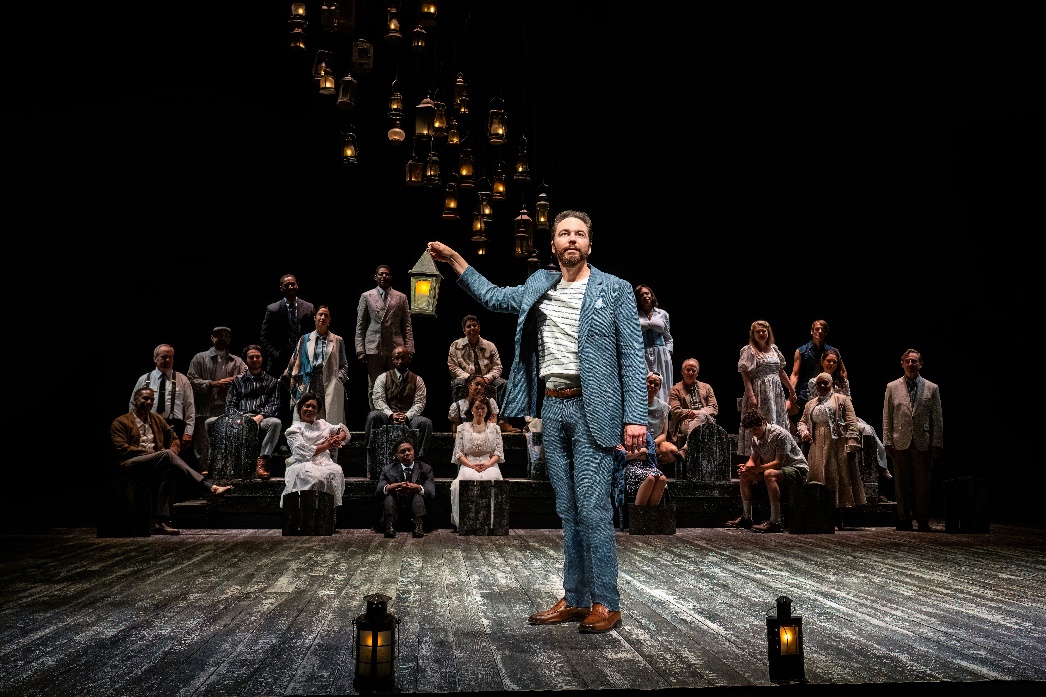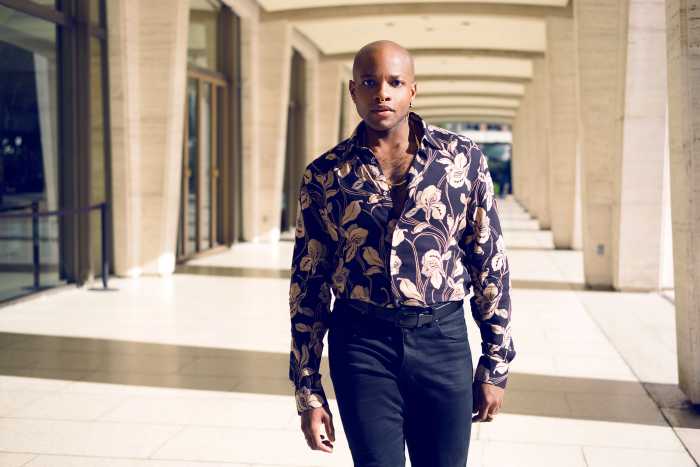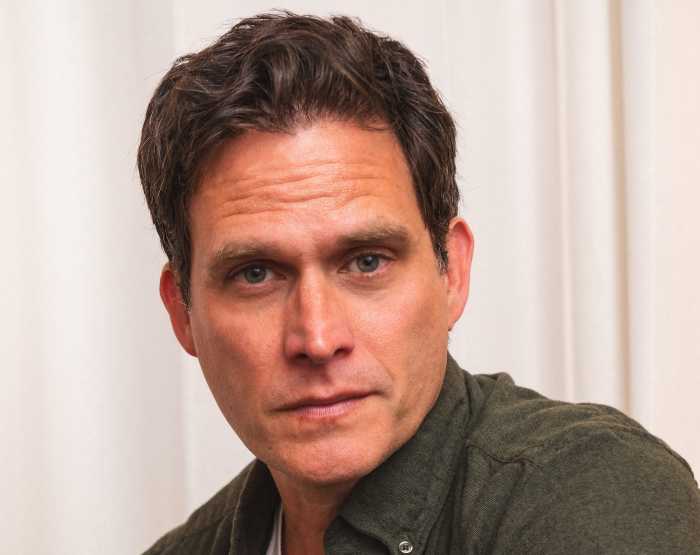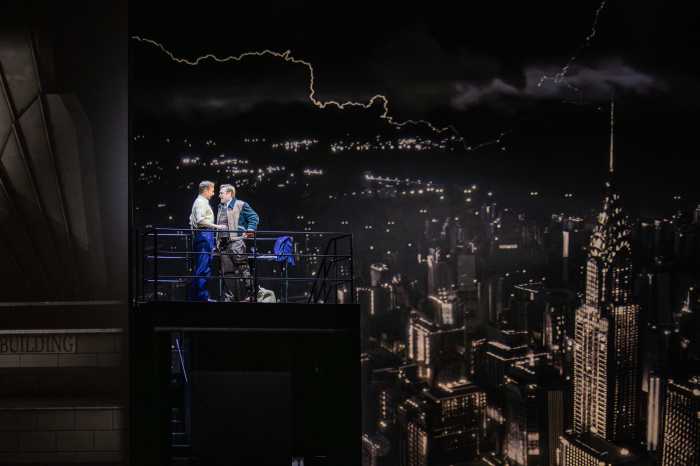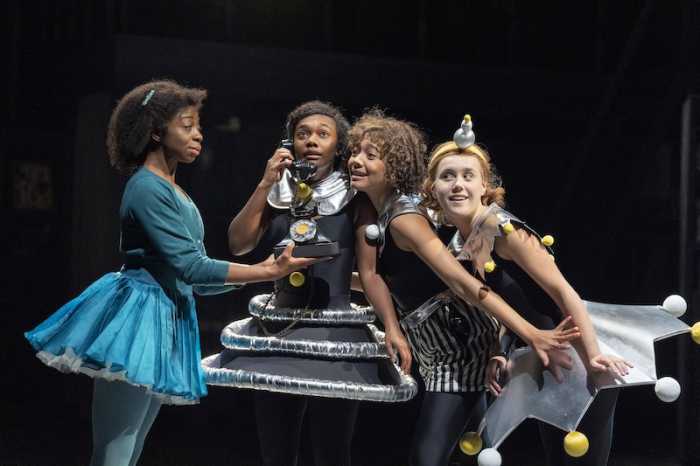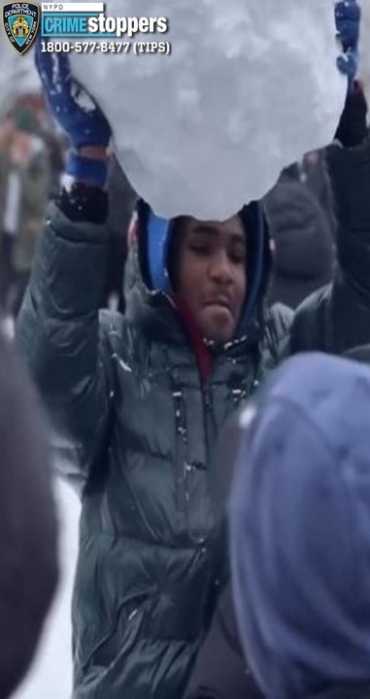“Our Town,” Thornton Wilder’s enduring appraisal of small-town life in early 20th century New Hampshire, is among the most oft-produced works in the American theatrical canon. It was last seen on Broadway some 20 years ago, with none other than Paul Newman taking the lead as the crusty Stage Manager. An earlier production starred the venerable Henry Fonda in the role.
Director Kenny Leon (“Purlie Victorious”) has boldly rejiggered this classic for contemporary theatergoers, employing an earnest, inclusive approach. The timeworn narrative still follows the births, deaths, joys, and sorrows of the residents of Grover’s Corners, a stand-in for Anywhere, USA, where love thy neighbor is the golden rule. The story centers on the Gibbs and Webb families, meant to represent our own neighbors, perhaps.
This well-intentioned production, however, is a bit muddled. For starters, Leon cast Jim Parsons to fill the shoes of the Stage Manager. The openly gay actor, best known as Sheldon in the TV comedy “The Big Bang Theory,” has pivoted to bona fide Broadway star, appearing in “The Normal Heart,” “The Boys in the Band,” and “Mother Play,” among others.
Regrettably, the shoes Parsons attempts to fill are not a perfect fit. Instead of a sage, rumpled curmudgeon in his 60s or 70s, Parsons, sporting a hipster beard with nary a grey hair visible, registers as in his mid-forties. His trademark, lilting delivery feels like a snarky stand-up comedian rather than a wistful narrator chronicling the deeply human gyrations of his beloved hometown. The gravitas of the role is tamped down.
In his quest for diversity, Leon has inserted complex, occasionally incongruous elements. The Tony Award-winning director added a prologue which feels lifted from a Broadway musical, where the multiracial townsfolk dance and belt out a sacred song combining traditional prayers from Muslim, Jewish, and Christian faiths, gospel-style. Some of them, oddly enough, clutch smartphones. The costumes, by Dede Ayite, are an amalgam of styles, not strictly from the early 1900’s.
The Gibbs family is now played by Black actors. The son, George Gibbs, marries Emily Webb, who is white. We are meant to ignore the fact that interracial marriage would cause outrage in America at that unenlightened time. It doesn’t help that we feel scant chemistry between the lovebirds, played by Ephraim Sykes and Zoey Deutch. The kindly milkman is played by a deaf actor (John McGinty), and everyone he encounters magically knows how to sign.
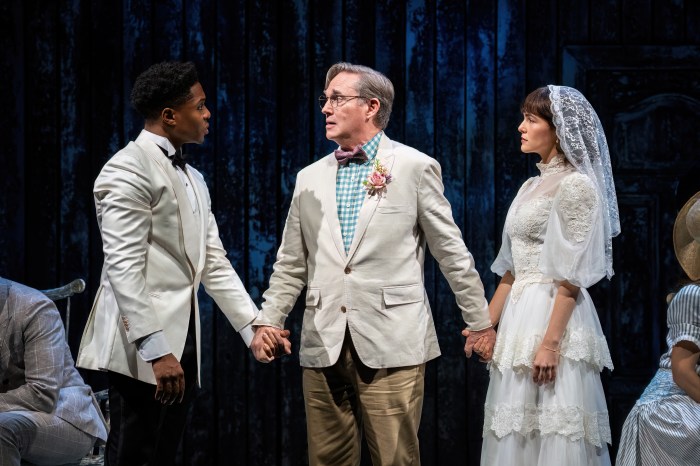
“Our Town” won the Pulitzer Prize in 1938 in part because of its groundbreaking metatheatrical devices. The action takes place on a largely bare theater set with minimal props, and the actors mime mundane tasks like cooking and cleaning. The Stage Manager is omniscient and addresses the audience directly. Act III takes place at a graveyard on the edge of town, where the deceased come very much back to life.
One of the strengths of this revival is the set, by Beowulf Boritt, which features a backdrop of weathered barn planks. In sync with Wilder’s vision of “Our Town” as portraying “the life of a village against the life of the stars,” the space is energized by a magnificent cosmic swirl of glowing lanterns that extend from the stage to the upper reaches of the Ethel Barrymore Theatre.
This version has condensed the three acts into 100 minutes, with no intermission. The starry, 28-member cast also includes notables like Richard Thomas, Billy Eugene Jones, and downtown theater veteran Julie Halston.
To be sure, the central themes come through loud and clear: honoring the simple pleasures and heartaches of everyday life, and the resiliency of the human spirit. And yet, by straining to be more universal, Leon has undercut the potency of human connections. Too often, this ambitious adaptation relies on a suspension of disbelief, which forms a scrim that tempers genuine emotion.
Our Town | Ethel Barrymore Theatre | 243 W. 47th St. | $84–$272 | https://www.ourtownbroadway.com/ | Through January 19, 2025 | 100 min., no intermission

